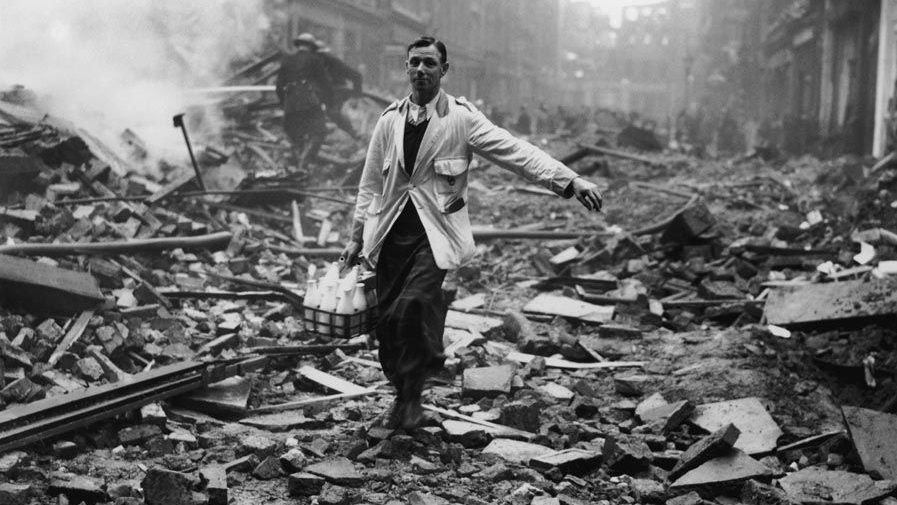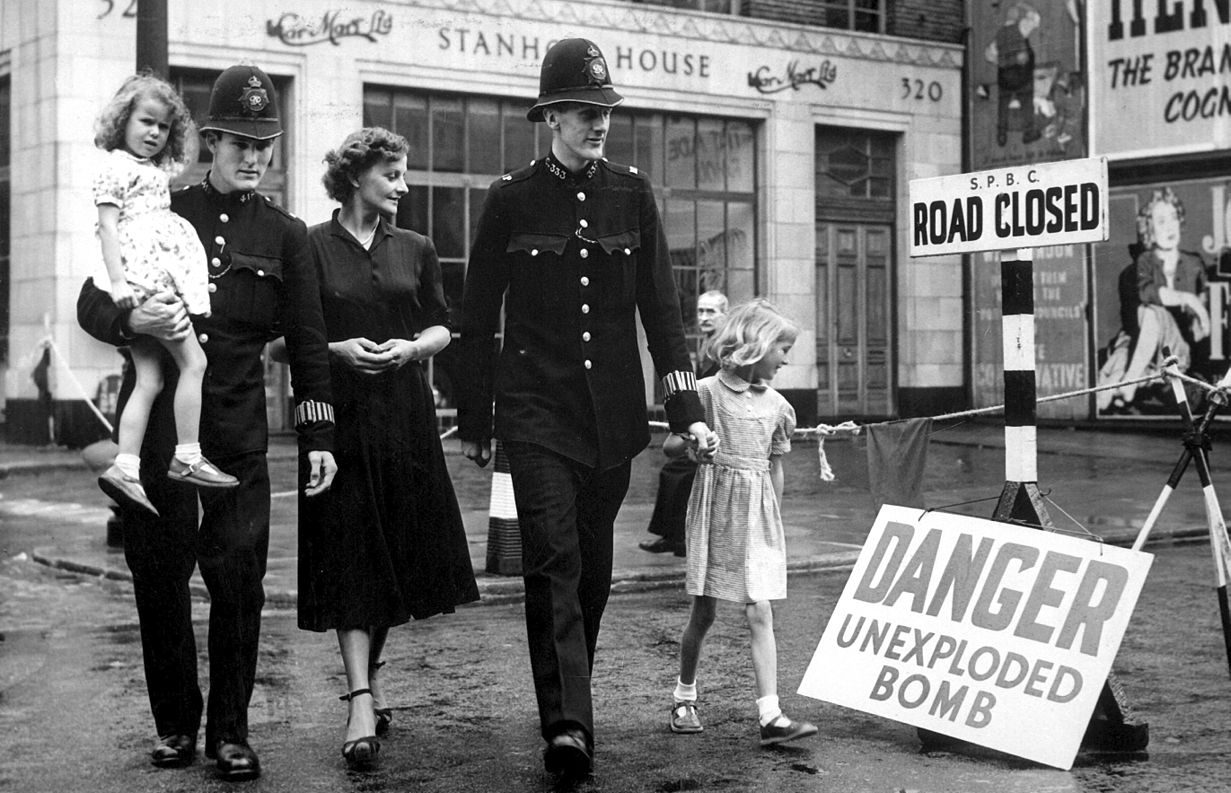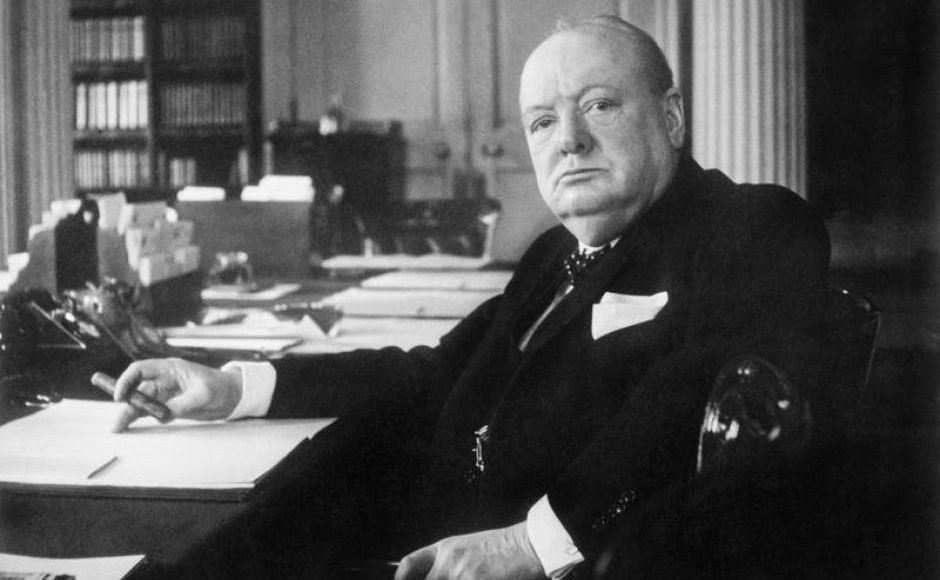
British Home Front
Second World War
Question: Who, during WW2, was known as The Forces’ Sweetheart?
Answer: Vera Lynn During the Phoney War, the Daily Express asked British servicemen to name their favourite musical performer. Vera Lynn came top and as a result became known as the Forces’ Sweetheart.
Question: Alvar Lidell became famous in Britain on the Home Front during World War Two. What was his job?
Answer: BBC News Reader His voice was amongst the most recognised in wartime Britain.
Listen here to a clip of Alvar Lidell reading the News on 15th September 1940 during the Battle of Britain
Audio PlayerThis includes a report into the Battle from BBC Reporter, Rob Duff
Question: At the outbreak of the war, the BBC did not have any News Reporters. They swiftly appointed a member of staff as their first War Correspondent and sent him to France. What was his name?
Answer: Richard Dimbleby
Question: Germany’s campaign after the Battle of Britain to bomb British cities and ports was known as what?
Question: What was the first commodity to be rationed in the Second World War?
Answer: Petrol This was introduced on the 8th September 1939 just one week after the outbreak of war.
Question: Germany Calling, Germany Calling, was the catchphrase of William Joyce. Although a UK citizen, he broadcast German propaganda regularly to Britain during the war from Hamburg. By what nick-name was he better know?
Answer: Lord Haw-Haw
Question: How many eggs were included in one person’s weekly food allowance during rationing in WW2?
Answer: Two
Question: What was the name of Vera Lynn’s Radio Programme during World War Two?
Answer: Sincerely Yours
Here you can listen to a short clip of Sincerely Yours – Vera Lynn’s radio programme during the war
Audio PlayerShe played requests for troops thus enhancing her reputation as the Forces’ Sweetheart.
Question: Introduced in 1938, what was the item that was extensively used on the Home Front during Second World War air raids? It was designed from corrugated steel by William Paterson & Carl Kernson and named after the Home Secretary of the time.
Answer: The Anderson Shelter
Question: During the Second World War one of the most popular Radio Shows was often just called ITMA (pronounced itmar). What does ITMA stand for?
Answer: It’s That Man Again Tommy Handley’s comedy programme took its title from a contemporary expression that referred to Hitler. He had been referred to in Britain as That Man because he had appeared ever more frequently and troublesomely in the news in the lead-up to the Second World War.
Question: On which British city on the 14th November 1940 during the Blitz did Germany carry out the heaviest air-raid yet with 515 bombers?
Answer: Coventry

Life on the Home Front in World War Two
Question: During the Second World War, Dover was the closest area to Nazi occupied Europe? As a result it was under constant attack from across the Straits of Dover. What became the resultant nickname for this corner of England?
Answer: Hell Fire Corner
Question: What nickname did the British gave to the V1 flying bombs that were aimed at London and South East England during the latter part of WW2?
Answer: The Doodlebug
Question: Who was known as the Radio Doctor during the War dispensing medical and dietary advice on the radio? Later, after the war, he became Chairman of the BBC.
Answer: Charles Hill Medical profession rules at the time meant that he could not broadcast under his own name, and so he was merely called The Radio Doctor. With his distinctive rich voice he made a real impact as a broadcaster.
This is a short clip of the The Radio Doctor broadcasting during the War
Audio PlayerCharles Hill was the wartime Radio Doctor. The entertaining way in which he spoke made him a big hit on the Home Front
Question: Before the Second World War the BBC ran two radio services – the BBC National Programme and the BBC Regional Programme. Under what name were these merged into one radio station on the outbreak of war?
Answer: The Home Service This station continued until 1967 when it became Radio 4.
Question: During the Second World War the BBC developed a new radio station that was designed to entertain and maintain morale amongst armed servicemen. What was the name of this radio station?
Answer: The Forces’ Programme There was an amount of joint programming between the Home Service and the Forces Programme signalled, on air, with announcements such as, “This is the Home and Forces Programme.” The Forces’ Programme became the template for the Light Programme which was introduced by the BBC at the end of the war in 1945. That station continued until 1967 when it was split into Radios One and Two.
Question: Name the campaign in Britain by the Ministry of Agriculture that encouraged people to grown their own food during the harshest periods of World War Two rationing?
Answer: Dig for Victory
Question: Name the popular American Band Leader who died during World War Two when his plane disappeared whilst on a flight from London to newly liberated Paris?
Answer: Glen Miller
Listen Here to Glen Miller’s Moonlight Serenade
Audio PlayerGlen Miller was one of the most popular band leaders during the war who came over to Britain with the American troops in preparation for D-Day.
Question: What was the name given to the organisation through which girls, often called Land Girls, worked on farms during WW2?
Answer: Women’s Land Army
Question: The British Ministry of Information in the midst of WW2 provided housewives with a pamphlet of useful tips on how to be both frugal and stylish in times of rationing. What was this pamphlet and policy called?
Answer: Make Do & Mend
Question: Which German love-song became very popular in Britain and amongst allied troops during the Second World War especially those in the Western Desert?
Answer: Lili Marlene After Germany occupied Yugoslavia, this song was played regularly by Radio Belgrade. Their transmissions could be picked up by British troops in Egypt who heard this song. From this it gained its UK popularity.
This is Vera Lynn’s English language version of the German song Lili Marlene
Audio PlayerVera Lynn recorded this English language version of the song after it became popular with British troops in North Africa and, later, it became a favourite on the Home Front.
Question: Which professional football club’s ground was used as a prisoner of war camp during the Second World War?
Answer: Swindon
Question: By what collective name where the men known who were conscripted during the war to work in the coal mines?
Answer: Bevin Boys They were named after Ernest Bevin, the Labour politician who was Minister of Labour and National Service in the wartime government.
Question: ARP Wardens patrolled the streets during the blackout to ensure that no light was visible. What did ARP stand for?
Answer: Air Raid Precautions
Question: The growing of which vegetable that had only previously been grown as an animal feed was encouraged during WW2 as a human feed? It has remained a popular vegetable every since.
Answer: Carrot Besides the use of silly cartoons about Dr Carrot, British wartime propaganda suggested that British night-fighter pilots eat carrots which helped them to see in the dark. This was to cover the fact that they had on-board radar.
Question: Who was the British Minister for Food during the war after whom a pie was named?
Answer: Lord Woolton Woolton Pie
Question: Which British entertainers sang songs such as Run Rabbit, Run and Underneath the Arches as part of their act during the Second World War?
Answer: Flanagan and Allen Bud Flanagan later sang the signature tune to the BBC TV Comedy Series Dad’s Army.
Winston Churchill’s Wartime Speeches
Click Here to listen to clips of the Famous Sections of Churchill’s Legendary Wartime Speeches including:
- Blood, Toil, Tears & Sweat;
- Fight Them on the Beaches;
- Their Finest Hour;
- The Few;
- British & American People Shall Walk Together;
- The End of the Beginning; and
- The Iron Curtain.
Question: Who was the owner of one of Britain’s mass circulation newspapers that served in Winston Churchill’s War Cabinet?
Answer: Max Aitken aka Lord Beaverbrook He owned the Daily Express that at the time had the largest circulation in the world of any newspaper.
Question: whose report to the government in 1942 led to the setting up of the welfare stater after the War?
Answer: Sir William Beveridge
Question: What was the purpose of Regulation 2D that was introduced by the Government during the Second World War?
Answer: Censorship of the Press
Question: Name the Novelist and Playwright whose Sunday Evening radio show, The Postscript was credited with strengthening civilian morale during the Battle of Britain? He was also a founder member of the Common Wealth Party that won a couple of Parliamentary By Elections during the War.
Answer: J. B. Priestley
Question: Who was the left-wing politician who wished to cooperate with Communists before 1939 but having served as the British Ambassador to the USSR (1940–42) grew increasingly wary of the Soviet Union and communism?
Answer: Stafford Cripps

